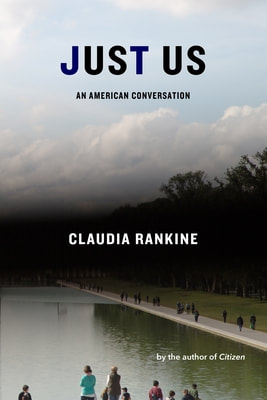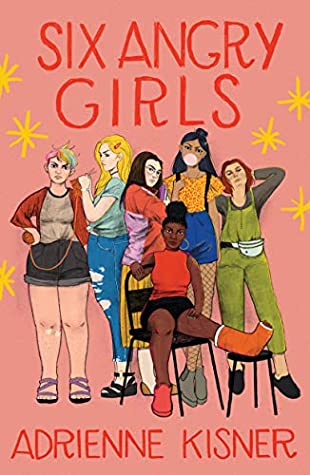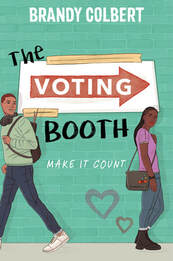 Thanks to Partner NetGalley for the digital ARC of Claudia Rankine’s Just Us: An American Conversation in exchange for an honest review. The book will be published on Tuesday, September 8, 2020. I will need to read Claudia Rankine’s Just Us again. I think it is brilliant and important and thoughtful, but I know that there’s more to absorb, more to contemplate. I read it too quickly this time, wrestled with the format of the e-book (I’m definitely going to buy it in print), and so I know that I missed details, connections, and nuance that would have enriched my reading experience even more. Still, even on a first read, I loved it. As she did in her gorgeous book Citizen: An American Lyric, Rankine uses a mixture of poetry, essays, and images through Just Us: An American Conversation. The book moves between the main pieces and connective pieces that are woven alongside the text, providing sources, in-the-moment fact checks, and further reflection. Rankine uses the intensely personal to explore the universal. She is wrestling with her own experiences as a way to grapple with American experience. She is both keenly aware of when she has been wronged . . . but she’s reflective and vulnerable enough to admit when she wrongs others, too. Her scope is wide ranging. She uses brief meetings with strangers in airports and on planes, longer conversations with friends that puzzle her, and disagreements or moments of dissatisfaction with her husband to explore her topic. She’s aiming to define whiteness, as she does in one of her classes at Yale, to try to figure out what it means to be white and how her own identity relates to that definition. She’s constantly challenging her own assumptions, her friends’ assumptions, small comments that seem to offer a key that will unlock a new insight into race in America. As she did in Citizen, Rankine presents her response in abstract and lyrical poetry, in meditations on things like tennis and college admissions, in social media, in her cancer, in her interracial marriage to a white husband. She’s looking for answers wherever she can. Often, after having written an essay about a conversation with someone, she then shares the essay with that person and shares his/her response. It’s fascinating, a true series of conversations that she’s developing with others and with herself. At one point, a friend critiques what Rankine has written because “there’s no strategy here,” and Rankine replies, “response is my strategy. Endless responses and study and adjustments and compromises become a life” (334). It’s what we all do, on some level, I think (or at least I do!): we respond to what happens and then test our responses, absorbing new information and events and meetings and conversations into our understanding. And then we do it again. This is a book I’ll be thinking about for a long time.
0 Comments
 Thanks to Partner NetGalley for the digital ARC of Adrienne Kisner’s Six Angry Girls in exchange for an honest review. The book will be published on Tuesday, August 18, 2020. Adrienne Kisner’s Six Angry Girls contains multitudes: mock trial and anatomical knitting (yes, that’s a thing) and high-school Drama and high-school drama and love and FEMINISM. This YA novel alternates between two high school seniors’ perspectives. Raina is a dedicated actor and president of the Drama Club until her long-time boyfriend, Brandon, breaks up with her in an incredibly callous way. The dissolution of their relationship makes her realize that she was in drama for all of the wrong, Brandon-centered reasons. Millie, the other protagonist, has been a part of the mock trial team since her freshman year and has earned some time in the spotlight. And then, a coup (led by Brandon!) means that she can’t be a part of the competition team anymore. Cast adrift, Raina and Millie find each other and begin their own, all-girls, mock trial team. They bring along with them a diverse group of others who have been cast out of the mainstream for a variety of reasons, some superficial and some related to their very identity. They are, of course, also dealing with other problems: Millie faces increased responsibilities because her mom divorced her dad, and now Millie has picked up entirely the role her mom played around the house. Raina had banked all of her hopes for college on drama; now that she’s not in a play, what does that mean for her super-planned future? She’s also still recovering from the loss of her relationship and, in search of somewhere else to devote her energy, joins a politically-focused knitting group. I liked so much about this novel. Raina and Millie are strong young women who are also believably flawed. Each is trying to figure out who she wants to be: Raina is moving on from a romantic relationship, and Millie--who identifies as homosexual and asexual--is moving into one . . . maybe. There is an important message of activism here and of when (and in what situations) it’s important to stand up for what you believe, even if it means giving up something that meant a great deal. Early on, I did think the pace dragged--I was interested but not compelled to read. But as the book continued, I was captured by the journeys of these characters as individuals and as part of a team that they are determined to make work. Six Angry Girls would be a great novel for teens--it’s an inspiring story of being cast aside and fighting for what’s right and for what matters on their own terms.
|
AuthorI'm Jen Moyers, co-host of the Unabridged Podcast and an English teacher. Archives
July 2021
Categories
All
|
Proudly powered by Weebly

 RSS Feed
RSS Feed